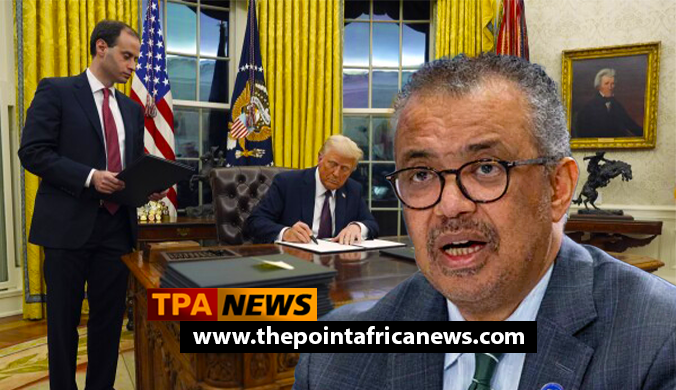By: TPA News Desk | editor@thepointafricanews.com

The United States has formally rejected amendments to the World Health Organization’s (WHO) legally binding International Health Regulations (IHR), which were adopted by WHO member states in 2024. The move, announced by U.S. Health and Human Services Secretary Robert F. Kennedy, Jr. and Secretary of State Marco Rubio, signals Washington’s intent to prioritize national sovereignty in future global health crises.
The amendments to the IHR, adopted by the World Health Assembly on June 1, 2024, were designed to improve global preparedness and response for future pandemics, drawing lessons from the disjointed international handling of COVID-19. They aimed to strengthen surveillance, information-sharing, and define a “pandemic emergency” to trigger more coordinated global action. These regulations were set to become binding on member states by July 19, 2025, unless formally rejected.
In their joint statement, Secretaries Kennedy and Rubio asserted that the amended regulations contain “vague and broad” terminology that risks “unwarranted interference” with the U.S.’s “sovereign right to make health policy.” They expressed concerns that the amendments could lead to WHO-coordinated responses that might infringe on Americans’ “speech, privacy, or personal liberties,” and could potentially impose measures akin to lockdowns or vaccine mandates.
The Trump administration’s rejection aligns with a broader push by Washington against certain international regulations and follows President Trump’s earlier announcement to withdraw the U.S. from the WHO altogether by January 2026. Critics of the amendments within the U.S. government argue that they expand the WHO’s authority disproportionately and fail to address the organization’s perceived shortcomings during the COVID-19 pandemic.
Proponents of the IHR amendments and a separate Pandemic Agreement, still under negotiation, argue that pandemics transcend national borders and require robust international cooperation and a unified global health architecture.








Leave a Reply